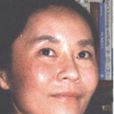基本介紹
- 中文名:歐陽瑩之
- 外文名:Sunny Y.Auyang
- 國籍:美國
- 職業:物理學家、科學學家
- 畢業院校:美國麻省理工學院
- 代表作品:《量子場論如何可能?》、《複雜系統理論基礎》
人物生平,學術著作,論著,論文,講座文章,
人物生平
歐陽瑩之先後在上海、香港、美國等地就讀國小、中學、大學,1972年獲麻省理工學院物理學博士學位。畢業後曾在美國惠普公司供職,後在麻省理工學院從事研究工作20餘年。1992年以來,她的研究興趣轉向對科學技術本質的哲學考察。著有《量子場論如何可能?》(1995)、《複雜系統理論基礎》(1998)、《日常生活和認知科學中的心智》(2000)、《工程學——無盡的前沿》(2008年)等。
學術著作
論著
- How is Quantum Field Theory Possible
- Foundations of Complex System Theories(中譯本:複雜系統理論基礎,上海科技教育出版社,2002)
- Mind in Everyday Life and Cognitive Science
- Engineering -- an Endless Frontier(中譯本:工程學——無盡的前沿,上海科技教育出版社,2010)
論文
- Mathematics and reality: two notions of spacetime in analytic and constructionist view of gauge field theories, Philosophy of Science 67: S482-494 (2000)
- Spacetime as a fundamental and inalienable structure of fields, Studies in History and Philosophy of Modern Physics, 32: 205-215 (2001)
- How do field theories refer to entities in a field? In Ontological Aspects of Quantum Field Theory, eds. M. Kuhlmann, H. Lyre, and A. Wayne, Singapore: World Scientific (2002), pp. 111-123.
講座文章
註:文章未發表
The ontology of quantum fields: entity and quality
Nature and our descriptions of it: predicate, function, symmetry
Two notions of "convergence on truth"
Synthetic analysis: how scientists combat complexity
Nonlinear dynamics: how science comprehends chaos
Mass phenomena and complexities of composition
Are you nothing but genes and neurons?
The hedgehog and the fox: two styles in science
Who am I? What is it? The subject-object relation
What do you see, and how? The cognitive infrastructure of vision
Technology as a scientific capacity to produce
Similarity and complementarity of science and engineering
Local and global knowledge in science and engineering
System concepts in engineering
Why chemical engineering emerged in American instead of Germany
What's wrong with "technology as applied science?"
The worldly sciences
From experience to design – the science behind Aspirin
Luck and the prepared mind in drug discovery
Reality and politics in the war on infectious diseases
Scientific convergence in the birth of molecular biology
Levels of complexity – understanding and fighting cancer
Nature and our descriptions of it: predicate, function, symmetry
Two notions of "convergence on truth"
Synthetic analysis: how scientists combat complexity
Nonlinear dynamics: how science comprehends chaos
Mass phenomena and complexities of composition
Are you nothing but genes and neurons?
The hedgehog and the fox: two styles in science
Who am I? What is it? The subject-object relation
What do you see, and how? The cognitive infrastructure of vision
Technology as a scientific capacity to produce
Similarity and complementarity of science and engineering
Local and global knowledge in science and engineering
System concepts in engineering
Why chemical engineering emerged in American instead of Germany
What's wrong with "technology as applied science?"
The worldly sciences
From experience to design – the science behind Aspirin
Luck and the prepared mind in drug discovery
Reality and politics in the war on infectious diseases
Scientific convergence in the birth of molecular biology
Levels of complexity – understanding and fighting cancer

